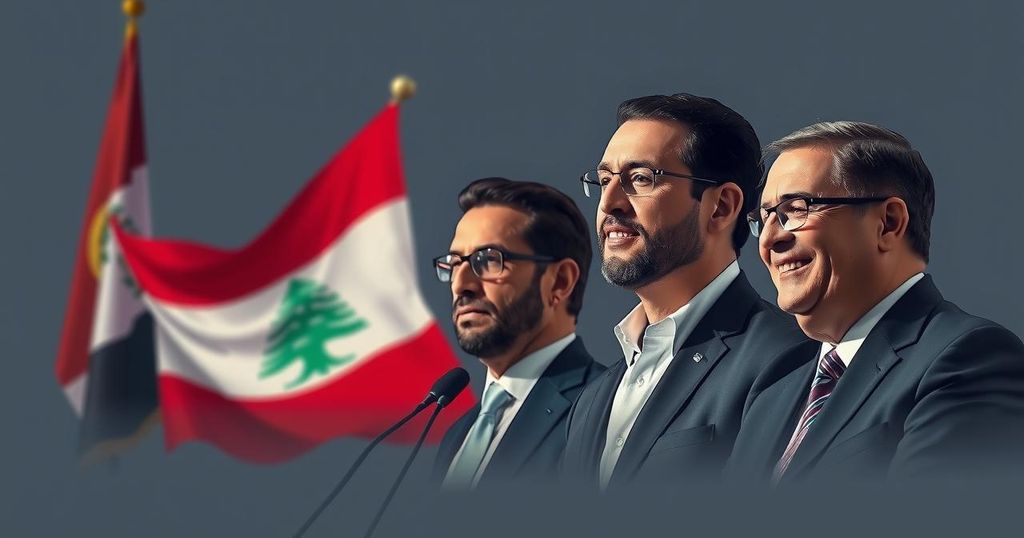Saudi Arabia’s Role in Electing Lebanon’s New President: A Pivotal Moment
Saudi Arabia’s last-minute diplomatic intervention led to the election of General Joseph Aoun as Lebanon’s president, successfully overcoming a prolonged political vacuum. With significant support from both domestic and foreign entities, Aoun’s presidency promises a pivotal shift regarding Hezbollah’s disarmament. However, navigating external influences and internal unrest will be crucial for his administration’s success.
A significant development occurred in Lebanon on Thursday when Saudi Arabia played a crucial role in guiding the country towards electing a new president, General Joseph Aoun. Just before the parliament meeting, the political situation in Lebanon appeared chaotic, with six viable presidential candidates and ongoing disputes among the political elite. Saudi envoy Prince Yazid bin Farhan arrived in Beirut and engaged in urgent discussions with various political factions, leading to widespread support for Aoun, who ultimately received ninety-nine votes in parliament, surpassing the necessary two-thirds majority.
Aoun’s election marks a pivotal moment, as he promises to tackle the longstanding issue of Hezbollah’s armament, an undertaking with significant implications for Lebanon’s political landscape. Celebrations ensued immediately after his swearing-in, but the intervention from Saudi Arabia, alongside support from Western diplomats, raises questions about Lebanon’s sovereignty amidst external influences. Hezbollah’s unusual support for Aoun, despite previous tensions, suggests a strategic shift in balancing domestic pressures with foreign relations.
Having endured a protracted political vacuum, Lebanon now faces further complexities as Aoun navigates the expectations placed upon him, particularly regarding disarmament negotiations with Hezbollah while striving to prevent potential civil unrest. The unfolding dynamics between Lebanon, Saudi Arabia, and Iran could shape the future of regional politics, with eyes on Aoun to restore stability and international legitimacy for the Lebanese state.
The political climate in Lebanon is characterized by a sectarian system that requires a near-consensus for presidential elections. This situation exacerbated after the tenure of former President Michel Aoun, widely criticized for perceived Iranian influence through Hezbollah. After over two years of legislative stalemates and foreign disengagement, the Saudi initiative to support General Joseph Aoun’s presidential candidacy signals a strategic realignment aimed at countering Iranian dominance in Lebanon. The ongoing complexities of disarmament and regional allegiances present both challenges and opportunities for Aoun’s administration, as Lebanon seeks to establish a stable governance framework post-election.
In conclusion, the election of General Joseph Aoun as Lebanon’s new president, facilitated by a decisive Saudi diplomatic push, marks a hopeful yet complex shift in the nation’s political trajectory. Despite jubilation over his appointment, challenges remain regarding Hezbollah’s arsenal, the influence of external forces, and the necessity of maintaining environmental stability and sovereignty. Aoun’s administration will be closely monitored as it attempts to weave a path towards legitimate governance and socio-economic rejuvenation amid a turbulent regional backdrop.
Original Source: www.cnn.com




Post Comment